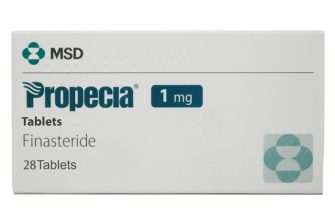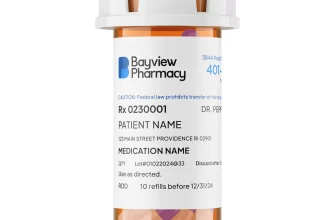If you’re considering Viagra for erectile dysfunction, understanding the prescription process is key. In the UK, Viagra is available only with a prescription, ensuring that you receive the appropriate dosage and guidance tailored to your needs. Consult your GP or a qualified healthcare provider who can assess whether this medication is right for you.
After a thorough evaluation, your doctor may prescribe Viagra if they determine that it’s safe and beneficial for your condition. Typically, this includes discussing your medical history and any medications you’re currently taking. You might also undergo basic tests to rule out underlying health issues.
Once prescribed, Viagra can be obtained from pharmacies. It’s crucial to follow your doctor’s instructions regarding dosage and usage. Be aware that side effects may occur, so maintaining open communication with your healthcare provider is important. If you experience any adverse reactions, inform your doctor promptly.
Remember, purchasing Viagra online without a prescription poses risks, including counterfeit medications. It’s best to rely on reputable pharmacies after obtaining a valid prescription. This ensures not only your safety but also the effectiveness of your treatment.
- Viagra on Prescription in the UK
- Understanding Viagra: What It Is and How It Works
- Eligibility Criteria for Prescribing Viagra in the UK
- Key Eligibility Requirements
- Consultation Process
- Step-by-Step Process for Obtaining a Prescription
- Common Side Effects and Risks Associated with Viagra
- Alternatives to Viagra: Other Treatment Options
- Oral Medications
- Non-Medical Alternatives
- Cost of Viagra Prescription in the UK: What to Expect
- Other Expenses
- Insurance Coverage
- Consultation with Healthcare Professionals: What to Prepare
- Questions to Consider
- Document Your Symptoms
Viagra on Prescription in the UK
To obtain Viagra in the UK, you need a prescription from a registered healthcare professional. This ensures that your use of the medication is safe and appropriate for your specific health condition.
During your consultation, the healthcare provider will assess your medical history, check for any underlying health issues, and discuss potential side effects. It’s essential to provide accurate information to receive the best care.
Viagra, or sildenafil, is primarily used to treat erectile dysfunction. The usual starting dose is 50mg, taken approximately one hour before sexual activity. Depending on your response and any side effects, your doctor may adjust the dosage to 25mg or 100mg.
Many health services offer online consultations for discreet access to prescriptions. However, ensure the service is regulated and legitimate to avoid counterfeit medications. Always consult with your GP if you have any doubts.
It’s advisable to avoid combining Viagra with certain medications, especially nitrates for heart conditions, as this can lead to a dangerous drop in blood pressure. Discuss any current medications with your doctor to ensure safety.
Insurance coverage varies for Viagra prescriptions. Some plans may partially cover costs, while others may not. You can inquire with your insurer for specific details.
Regular follow-up appointments with your healthcare professional can help monitor your treatment and make necessary adjustments. Always prioritize open communication about your experiences and concerns.
Understanding Viagra: What It Is and How It Works
Viagra, known generically as sildenafil, treats erectile dysfunction (ED) by improving blood flow to the penis. It works by inhibiting an enzyme called phosphodiesterase type 5 (PDE5), which results in increased levels of a substance called cyclic guanosine monophosphate (cGMP). Elevated cGMP leads to relaxation of smooth muscles and enhanced blood vessel dilation.
The effectiveness of Viagra hinges on sexual stimulation, ensuring that it supports an erection when arousal occurs. It’s important to note that Viagra does not increase sexual desire but facilitates the physiological process of erection.
Viagra is typically prescribed in 25mg, 50mg, and 100mg doses, with healthcare providers evaluating individual patient needs and adjusting the dosage accordingly. Take Viagra about 30 minutes to an hour before planned sexual activity for optimal results, and effects can last up to four hours.
| Dosage | Effect Duration | Onset Time |
|---|---|---|
| 25mg, 50mg, 100mg | Up to 4 hours | 30-60 minutes |
Common side effects include headache, flushing, nasal congestion, and upset stomach. Serious side effects, although rare, can include changes in vision or hearing and priapism, a painful erection lasting more than four hours. Discuss any pre-existing health conditions or medications with your doctor to avoid adverse interactions.
Prescription of Viagra is crucial, as medical guidance ensures proper usage and helps identify underlying causes of erectile dysfunction. Regular follow-up appointments can enhance treatment effectiveness and monitor overall health. Always consult your healthcare provider for personalized advice and before starting any new medication.
Eligibility Criteria for Prescribing Viagra in the UK
To qualify for a prescription of Viagra in the UK, patients must meet specific criteria established by healthcare professionals. These guidelines ensure that the medication is used appropriately and safely.
Key Eligibility Requirements
- Age: Patients must be at least 18 years old.
- Medical Assessment: A thorough physical examination and medical history review are required to identify underlying health conditions.
- Erectile Dysfunction Diagnosis: A formal diagnosis of erectile dysfunction (ED) is necessary. This may involve discussing symptoms and any relevant psychological factors.
- Health Conditions: Patients with certain health conditions, such as severe heart problems, liver disease, or those taking nitrates for chest pain, may not be eligible.
- Dose Regulation: The prescribing physician will determine the appropriate dose based on individual health assessments.
Consultation Process
The process begins with a consultation, which can occur in-person or via a telehealth platform. During this appointment, patients should:
- Provide details about their sexual health and any concerns regarding ED.
- Discuss all medications currently being taken to avoid harmful interactions.
- Understand the potential side effects of Viagra and ensure that they are prepared to follow the doctor’s guidelines.
After this evaluation, a healthcare provider can make an informed decision regarding the prescription of Viagra, ensuring safety and efficacy for the patient. Regular follow-ups may be recommended to monitor the treatment’s effectiveness and adjust the prescription as needed.
Step-by-Step Process for Obtaining a Prescription
To obtain a prescription for Viagra in the UK, follow these straightforward steps:
1. Schedule an Appointment with Your GP: Contact your general practitioner (GP) to arrange a consultation. This can be done through a phone call or online booking system provided by the surgery.
2. Prepare for the Consultation: Gather any relevant medical history, including existing conditions and medications. Make a note of any symptoms you’re experiencing or questions you might have regarding erectile dysfunction.
3. Discuss Your Condition: During the appointment, openly discuss your symptoms with the doctor. Be honest about any lifestyle factors that may contribute to erectile dysfunction, such as stress or health issues.
4. Undergo Necessary Assessments: The doctor may perform a physical examination or recommend tests to rule out underlying medical conditions. Be prepared for this, as it helps ensure accurate diagnosis and treatment.
5. Receive the Prescription: If Viagra is deemed appropriate, your GP will provide you with a prescription. They may explain dosage and usage instructions thoroughly during this time.
6. Choose a Pharmacy: Take your prescription to a local pharmacy. Alternatively, many pharmacies offer online services for medication collection or home delivery.
7. Follow Up: After starting the medication, consider scheduling a follow-up appointment to discuss your response to the treatment and any side effects you may experience. Adjustments may be needed based on your feedback.
By following these steps, you can successfully navigate the process of obtaining a prescription for Viagra in the UK, ensuring proper guidance and support from healthcare professionals.
Common Side Effects and Risks Associated with Viagra
Patients using Viagra should be aware of potential side effects. The following effects may occur:
- Headaches
- Flushing (warmth, redness, or tingly feeling)
- Indigestion or upset stomach
- Nasal congestion
- Dizziness
- Changes in vision, such as increased sensitivity to light or blurred vision
Most side effects are mild and temporary. However, some risks warrant attention. Seek immediate medical assistance if experiencing:
- An erection lasting longer than four hours (priapism)
- Severe chest pain or discomfort
- Sudden loss of vision in one or both eyes
- Sudden hearing loss or ringing in the ears
Individuals with certain health conditions should consult a doctor before using Viagra. These include:
- Heart problems, including recent heart attack or stroke
- Low or high blood pressure
- Liver or kidney issues
- Blood disorders, such as sickle cell anemia or leukemia
Medications interacting with Viagra may amplify side effects. Inform your healthcare provider about all medications, including:
- Nitrates (often prescribed for angina)
- Alpha-blockers (used for high blood pressure)
- Certain antifungals and antibiotics
Awareness of these side effects and risks facilitates informed decisions. Regular consultation with a healthcare provider ensures safe usage and management of any arising issues.
Alternatives to Viagra: Other Treatment Options
Consider several effective alternatives if Viagra isn’t suitable. Medications like Cialis (tadalafil) and Levitra (vardenafil) provide similar benefits with different active ingredients and durations. Cialis, for instance, can last up to 36 hours, offering flexibility for spontaneous intimacy.
Oral Medications
Another option includes Avanafil (Stendra), which works quickly, taking effect within 15-30 minutes. It’s popular for its rapid onset and fewer side effects. These oral medications are available with a prescription and may suit varying preferences.
Non-Medical Alternatives
Consider lifestyle changes as a first step. Regular exercise, a healthy diet, and weight management can improve erectile function significantly. Additionally, counseling or therapy might address psychological factors affecting performance, providing a holistic approach to treatment. Herbal supplements, such as ginseng or L-arginine, may also offer benefits, though consult a healthcare provider before use.
Cost of Viagra Prescription in the UK: What to Expect
The cost of a Viagra prescription in the UK typically ranges from £8 to £20 per tablet, depending on the pharmacy and whether you’re purchasing branded or generic versions. Many pharmacies offer discounts for bulk purchases, reducing the per-tablet price. It’s a good idea to compare prices across different providers.
Other Expenses
In addition to the medication cost, you may encounter prescription fees. As of now, the standard NHS prescription charge is £9.65 per item, unless you qualify for an exemption. Private prescriptions can vary, often leading to additional consultation fees with your GP or a specialized clinic.
Insurance Coverage
Some private health insurance plans may cover the cost of Viagra prescriptions, but this varies by provider. Check with your insurance company to see if erectile dysfunction treatments are part of your policy. If not, consider discussing payment options with your healthcare provider.
Consultation with Healthcare Professionals: What to Prepare
To ensure a productive consultation regarding Viagra, gather key information about your health history. Note any medications you currently take, including over-the-counter drugs and supplements. Be ready to discuss any chronic conditions, particularly heart-related issues, diabetes, or high blood pressure.
Questions to Consider
Prepare a list of questions to address during your meeting. Ask about potential side effects, interactions with other medications, and how Viagra may benefit you. Inquire about dosage options and the proper administration. Understanding these aspects will clarify your treatment plan.
Document Your Symptoms
Keep a record of any symptoms you’ve experienced, including their frequency and intensity. This documentation helps the healthcare professional understand your situation better. Discuss how these symptoms impact your daily life and relationships, as this context can influence treatment decisions.
Being open and honest about your concerns will encourage a trusting dialogue. This collaboration aids in arriving at an effective treatment strategy tailored to your needs and preferences.










